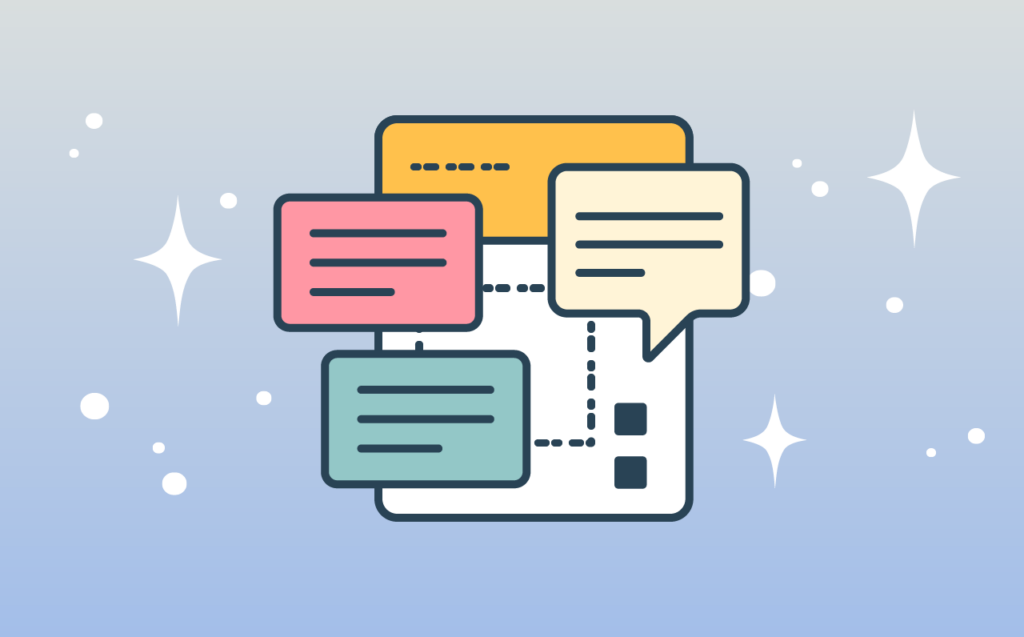“The shoemaker makes a good shoe because he makes nothing else.”
This Ralph Waldo Emerson quote might be close to 150 years old, but wow—what a perfect metaphor for the power of specialization.
And in the century-plus since Emerson’s time, shoe fabrication has grown even more specialized. The largest manufacturers—think Nike and Adidas—have entire divisions dedicated to footwear for individual sports. Most modern athletes wouldn’t dream of running a marathon in basketball shoes—or vice versa.
Fast-forward to 2023 and the lightning-fast pace of tech innovation. In the grand scheme of things, the artificial intelligence (AI) marketplace is still in its infancy. And yet, we’re already starting to see solutions tailored to specific use cases.
In the healthcare space, that has major implications for specialist providers. From a treatment perspective, it wouldn’t make sense for a patient with a broken leg to go to a psychologist—so why would it make sense for an orthopedic surgeon to use the same AI tool as a mental health clinician?
And if that’s the case, then why on Earth would a behavioral health provider—or any healthcare specialist, for that matter—use the same AI tool as the general public?
The Limitations of General AI in Behavioral Health
That’s not to say that general AI tools—ChatGPT and the like—aren’t valuable. AI in any form is a true technological marvel—one that’s totally transforming the way we navigate our daily lives.
But AI isn’t a magic genie in a bottle. The output it generates is only as good as the information used to train it. That’s why it’s crucial for behavioral health-specific AI tools—including CareOps Automation platforms designed to automate documentation and treatment analysis—to be trained on a large volume of high-quality, behavioral health-specific data (i.e., real-life therapy conversations).
Behavioral health AI must be trained using behavioral health data.
AI trained on a generalized dataset might work just fine when you’re asking it to draft a quick email, but in a high-stakes environment like health care, it’s essential to use AI that’s intentionally designed for the task at hand.
In behavioral health, specifically, general AI would be hard-pressed to detect, understand, and interpret the clinical context of a therapy session. Similar to a human with no clinical training in behavioral health, a general AI system—one trained only on broad, varied inputs—would be incredibly limited in its ability to:
- Grasp Contextual Subtleties
General AI can process the words your clients say, but it may fail to capture the underlying clinical or emotional significance. For example, say one of your clients spends the majority of a therapy session talking about their kids or pets. This might seem inconsequential to general AI—or even to a human who is not a trained mental health professional.
But to a behavioral health provider—or an AI tool that specializes in behavioral health—the client’s phrasing may give subtle emotional cues or reveal hidden patterns. Discerning the emotional undercurrents in seemingly mundane dialogue is a learned skill—one that general AI simply can’t perform.
- Interpret Therapeutic Language
Unlike general conversation, therapeutic dialogue led by a trained behavioral health provider is often laced with clinical terms and phrases that carry certain meanings in a mental health context.
General AI is not trained in this lexicon, so there’s a good chance it will misinterpret the words and miss the true meaning of them. For instance, a therapist might use terms like “ground” or “containment,” which have specific implications in therapy. General AI might not recognize these as technical terms, leading to output—in this case, documentation—that confuses or oversimplifies what they mean and how they relate to the client’s care.
Human behavioral health experts must be involved in developing behavioral health AI.
You need more than a pared-down transcript to write a complete, compliant, clinically relevant session note. That’s why AI designed for behavioral health documentation must excel not just in accurately capturing the session itself, but also in deciphering audio and text input to understand the substance of the conversation through a clinical lens—and then translating it into documentation that meets established compliance standards.
Using specialized AI can ensure that not only are your notes accurate, but they also reflect the care process and behavioral health-specific policies. The only way to build this type of AI tool is by harnessing the knowledge of human experts.
Technologists alone cannot create behavioral health-specific AI—full stop. To train the AI for behavioral health tasks—and to fine-tune and validate the models—skilled clinical teams absolutely must be involved.
“For any technology that leverages AI models, effectively training the models to perform with a high degree of accuracy is critical,” Shiri Sadeh-Sharvit, PhD, Chief Clinical Officer at Eleos Health, explained in this article. “For a model specific to behavioral health, that level of training is only possible with input from clinical experts—which is why our clinical team is a core differentiator for us at Eleos. Furthermore, the overall effectiveness of the model hinges on the quality of the data used to train it. By training our models with real-world session data, we enhance their applicability in the intended context: community-based behavioral health clinics.”
One of the most important questions you can ask about an AI tool you are thinking of implementing in your organization is, “How are clinical experts involved in the development of this AI?”
The answer should, at minimum, check two crucial boxes:
- Clinical experts helped build the AI tool.
Clinical experts should be involved in the development process from the get-go, shaping the AI tool with their unmatched understanding of therapeutic processes, patient behaviors, and clinical nuances. These experts should come from a diverse set of backgrounds and specialties, covering everything from community mental health to field-based case management to private practice. That way, they can make sure the tool delivers accurate output in a variety of care settings and scenarios.
- Clinical experts continuously monitor the AI tool’s performance.
The best AI tools keep learning. Clinical experts should keep close tabs on the quality of the AI’s output, intervening to update and refine the tool as necessary. This is especially important considering the evolving nature of behavioral health research and best practices.
The crème de la crème of behavioral health AI tools also validate their models through peer-reviewed research studies, looking not only at the performance of the AI, but also the effect on client care.
The unique challenges of behavioral health documentation demand a system trained on behavioral health datasets, fine-tuned and validated by clinical experts, and capable of continuous learning and adaptation. This specialized approach is not just about technological innovation; it’s about creating a tool that truly understands and supports the intricacies of behavioral health care.
4 Ways Behavioral Health-Specific AI Outperforms General AI
Okay, now that you have a sense of what goes into creating AI specialized for behavioral health and why providers should use this type of AI tool, let’s talk about how behavioral health-specific AI can make an impact in your organization. (Hint: The value of a specialized healthcare AI tool goes beyond operational efficiency to support care quality.)
1. Accurately Interpreting and Documenting Conversations
Therapy conversations are layered with meaning, and specialized behavioral health AI is uniquely equipped to unravel these layers. For example, when a patient talks about recent stressors, the AI can identify underlying themes such as anxiety or coping mechanisms. So when it comes time to document that session, the AI tool captures not just the words, but the story they tell—leading to a richer, more accurate summary of the session that reflects its true therapeutic value.
2. Optimizing Documentation for Compliance and Defensibility
Beyond capturing conversational details, behavioral health-specific AI also optimizes session notes for compliance and defensibility. It recognizes and accurately documents treatment techniques and client responses, ensuring notes are thorough, accurate, and reflective of medical necessity.
3. Delivering Relevant Care Insights
Behavioral health-specific AI can distinguish what’s clinically significant in a session—and what’s not. It can sift through complex conversations and tease out key therapeutic themes and interventions. Whether a patient is discussing routine activities or deeper emotional experiences, AI specialized for behavioral health can discern and highlight the moments that are truly relevant to the client’s treatment. This not only boosts the quality of the documentation it generates, but also unlocks a new resource for care planning and progression.
4. Improving Clinical Skills and Care Quality
Clinical insights also allow providers an unprecedented window into their own effectiveness. The best behavioral health AI tools not only take some of the documentation burden off providers’ shoulders and enable them to better engage with each client, but also serve up detailed clinical insights to help those providers reflect on—and level up—their care. Using AI-generated analysis on things like therapy themes, techniques, and talk-versus-listen time, providers and supervisors can improve therapeutic approaches—and ultimately, achieve better client outcomes.
Eleos: The Leader in AI Specialized for Behavioral Health
Here at Eleos, we’re all-in on specialization. Our AI is meticulously trained on a wealth of behavioral health data, enabling it to understand and process the complexity and nuance of behavioral care—all while decreasing provider documentation time by more than 50%.
Clinical expertise is at the core of everything we do.
We’ve assembled an all-star team of clinical experts from all corners of the behavioral health space. Boasting more than 180 total years of experience in the field, these clinicians continuously test, validate, and fine-tune our AI models to ensure the clinical accuracy and relevance of our note suggestions and session analysis.
Thanks to their efforts—and the vast dataset of real-world behavioral health sessions used to develop our platform from day one—Eleos Health’s AI can reliably recognize and interpret clinical terminology, client-therapist interactions, and subtle emotional indicators.
In addition to running research studies to clinically validate Eleos Health’s AI tools, this team has also published a host of peer-reviewed journal articles detailing their findings.
Our specialized AI embeds seamlessly into existing clinical workflows.
In the words of our CEO, Alon Joffe, “Workflow is always what will win over the clinician. If you ask them to log into a different system, you’ve lost them. If there are glitches, you’ve lost them. If the button was green and now it’s blue, you’ve lost them.”
That’s exactly why we intentionally designed our AI tools to work in tandem with existing software systems (most crucially, EHRs) as well as current provider workflows. This simplifies implementation and adoption, making it easier to realize the full value of our AI technology in the shortest possible time frame.We’re the only behavioral health-specific AI tool that embeds directly within virtually any web-based EHR, minimizing the required IT lift and getting providers up and running fast—without disrupting the care process.
If you’ve seen one AI tool, you’ve seen ’em all—right?
Wrong.
Just like you (probably) wouldn’t play soccer in a pair of hiking boots, you definitely don’t want to use a general AI tool to analyze and document behavioral health sessions.
Only a tool built and trained with behavioral health-specific data and clinical expertise can capture the depth and nuance of therapy conversations—and thus, generate high-quality documentation, serve up meaningful care insights, and ultimately, drive better client outcomes.
The true value of a solution like Eleos lies in elevating behavioral health practice as a whole by ensuring that every client session is captured with the detail it deserves—all while freeing providers to focus more on care, and less on operations.

